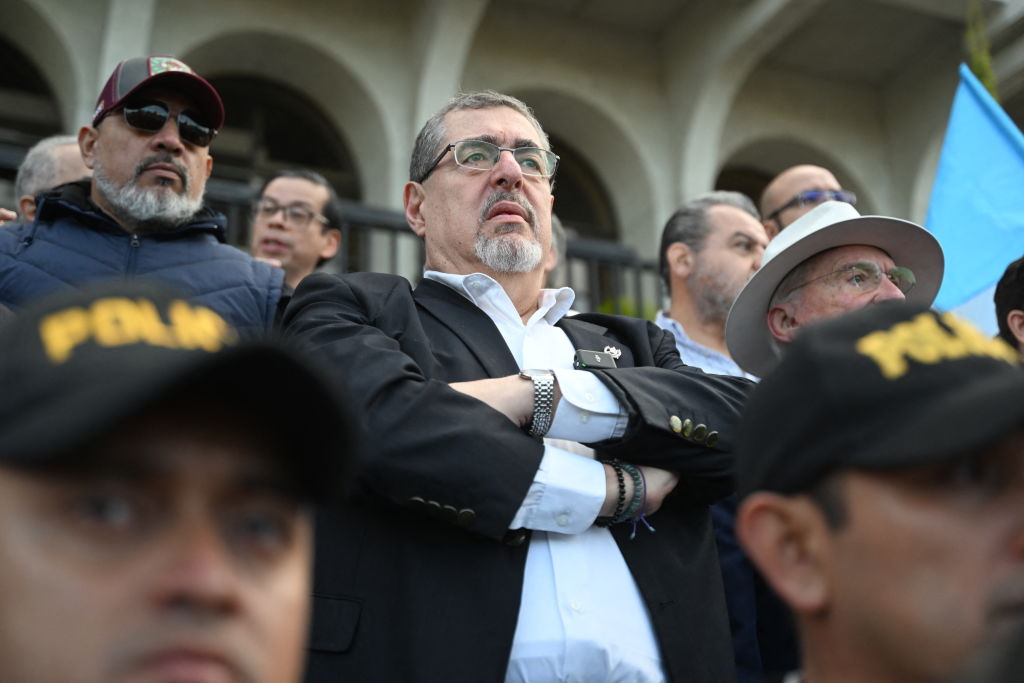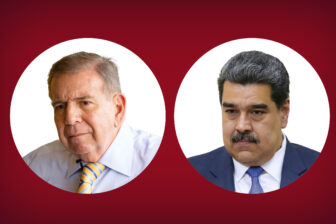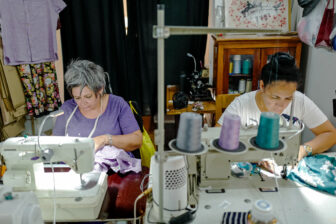Guatemala’s private sector is typically portrayed as an oligarchic cabal determined to keep pro-reform president-elect Bernardo Arévalo out of office, or at least sabotage his administration. This view, however, obscures the diversity among the country’s elites—and hurts the international community’s attempts to ensure that Arévalo can take office on January 14 and then govern effectively.
The U.S. and its partners seem to be leaning too heavily on threats of economic punishment and not enough on what they can offer a new Guatemala to grow its economy. Making the carrots as public—and as convincing—as the sticks would be a better way to convince elites to support the country’s democracy.
Undoubtedly, some Guatemalan business leaders support moves by the attorney general that seem designed to overturn the results of the August election. After dismantling a groundbreaking UN anti-corruption mission in 2019, corrupt oligarchs are not eager to come under renewed scrutiny. Some of them see Arévalo as a closet communist and a threat to private property, and deeply mistrust his Indigenous supporters.
They have reportedly encouraged prosecutors to pursue baseless claims of election fraud and politically motivated investigations into Arévalo’s Semilla party. The authorities seized election records from the Supreme Electoral Tribunal, suspended Arévalo’s party, and even threatened to prosecute him for social media posts supporting student protestors a year ago.
To influence these hardliners, the State Department banned nearly 300 Guatemalans, including business leaders and their families, from traveling to the U.S. in December. The same month, the senior U.S. diplomat for Latin America went further, warning that attempts to sideline Arévalo would “be met with a strong U.S. response,” hinting at potential economic sanctions.
However, there are also fence-sitters—and even reform advocates—in Guatemala’s private sector. Following Arévalo’s unexpected victory, several business associations called for a peaceful transfer of power, including a joint statement in October that spoke of “strengthening the rule of law and defending the democratic values” of the country.
Businesses had generally supported Arévalo’s conservative opponent, and following the election, they complained bitterly about pro-Arévalo protests that paralyzed commerce. Still, the most influential business association, CACIF, has criticized attempts to impede the political transition. In September, it denounced a raid on the country’s independent electoral authority, calling on the government to “comply with the constitutional order and respect democratic institutions.”
The Industrial Chamber of Commerce invited Arévalo to a major conference to share his vision for the country. The U.S.-based Partnership for Central America—designed to drive private investment to El Salvador, Honduras, and Guatemala—hosted a breakfast for Arévalo and business leaders who have signed a pledge to uphold the rule of law.
It is impossible to know what business leaders are saying in private, but at least some of them might be tempted by an off-ramp from this dangerous political crisis. To mobilize their support, the international community needs a new message, one that emphasizes the opportunities of a new “Guatemalan spring.”
The carrots
A commitment to good governance would reassure investors, including those who avoid the country out of concerns about the U.S. Foreign Corrupt Practices Act. The World Bank has found that countries that control corruption “attract more investment and grow more rapidly.” That is not surprising; for businesses, bribes are a tax that eats into profits.
Moreover, this is a particularly auspicious moment for Guatemala to clean up its act. There is appetite in the U.S. to fund development that reduces migration. Moreover, pandemic-induced supply chain disruptions and fears of a Chinese invasion of Taiwan are persuading large corporations to accelerate nearshoring, which Guatemala is especially well-positioned to take advantage of.
“Guatemala, alone among Central American economies, is approaching investment-grade status just as international trade patterns are shifting,” Ricardo Zúniga, until recently the U.S. special envoy to Central America, wrote last month. And that change, he added, “would reward Guatemala’s market-friendly reputation, its location near the largest markets in the world, and its free trade agreement with the United States.”
Beyond highlighting these global trends, the U.S. and its European partners should explain, in detail, how they would help an Arévalo-led Guatemala reap the benefits of nearshoring. The U.S. Development Finance Cooperation could dangle ambitious investment plans to deliver infrastructure critical for nearshoring—including for transportation and clean energy production and transmission. The State Department’s Bureau of International Narcotics and Law Enforcement Affairs could highlight ideas to fight organized crime to lower the cost businesses pay for private security. Finally, the White House and Congress could offer to ease trade restrictions on textiles produced in Guatemala using imported yarns—rules that make nearshoring less appealing to major U.S. companies.
Multilateral development banks could help, too, especially if Guatemala joins the Development Bank for Latin America (CAF). For now, however, proposed loans for infrastructure projects, including from the Inter-American Development Bank, are stalled in the nation’s Congress. That makes it even more important for the U.S. to marshal its own resources.
Ideally, the U.S. would partner with the EU to design an assistance package. The Arévalo administration would be a great candidate for investments from the EU’s new Global Gateway fund—and for support from other high-income partners like Japan.
Though the U.S. government is understandably preoccupied with preventing a coup in Guatemala, it has begun planning ways to support the next government. Jose Fernandez, a senior State Department official, recently promised U.S. assistance so that Guatemala might “benefit from the investments and the economic opportunities that will be brought about by stability and the rule of law.” Arévalo echoes that message. Though some business titans are spooked by his broadsides against the “economía de los privilegios,” he has sought to engage with the private sector.
Nevertheless, international actors must do more to sell democracy as a profitable option for Guatemalan elites. Without their support, it is unlikely Arévalo and his party will survive the onslaught from prosecutors and judges in order to build strong democratic institutions. With their support, and the right international investment, Guatemala’s economy could become a Central American powerhouse.
—
Gedan is the director of the Wilson Center’s Latin American Program









